Editor’s Note: This piece tied for first place in the Pulse writing contest, “On Being Different.”
“That seems like a dumb way to die.”
“Why would anyone choose to do that to themselves?”
I hear my medical-school classmates pose these questions as we learn about how an acetaminophen overdose can cause painful, fatal damage to the liver. How each metabolite can tear apart a liver cell. How it takes hours or even days for the full extent of the overdose to be felt.
I sit silently, uninterested in engaging in the conversation. My mind wanders back to the cold February night nearly fifteen years ago that brought me to my suburban emergency room.
I remember the taste of the charcoal paste in my mouth—smoky, like someone had fed me a steak that had been forgotten on the grill. I can still feel its graininess on my tongue and down my throat.
I was so relieved when the little white dots started appearing in my vomit: 5, 6…12, 13…18, 19…25, 26. Over the next several hours, I forcibly expelled nearly every Extra Strength Tylenol capsule that I’d intentionally consumed earlier that night.
As my student-doctor colleagues continue to debate the merits of acetaminophen as a suicide method, I’m overcome by the memory of my parents’ fearful voices just after being startled awake by their thirteen-year-old daughter, telling them through tears that she needs to be driven to the hospital. Once again, I see the panic in their eyes as I tell them what I have done.
I know that this conversation among my classmates is harmless. They’re expressing concern for the medical catastrophe that an acetaminophen overdose can cause. And yet I still feel the shame that, until I was well into my twenties, would burn through my body every time suicide was mentioned. The shame isn’t as intense as before, but every so often it still surfaces.
On this occasion, I don’t speak up. I don’t know how to ask my classmates to be more mindful of their words without also outing myself as a suicide-attempt survivor. I don’t want to be labeled as fragile or treated as unstable. I’m not yet sure if I want them to know that I am different.
But I am different. I know why someone might want to choose to end their own life. And I know how incredible life can be when, after a suicide attempt, healing and recovery take place.
Once ingested, acetaminophen takes one of three metabolic pathways. Two of the pathways, followed when the drug is used at therapeutic doses, produce no harmful side effects. The third pathway, however, can cause permanent, potentially fatal damage. This is the pathway taken during an overdose.
Now, in my first year of medical school, I’m facing a crossroads that feels similarly hazardous: Do I disclose my suicide-attempt history to my teachers and classmates, or do I try to hide this part of my life? Which pathway do I choose?
Trying to decide means engaging in an exhausting inner push and pull between hope and fear.
In many ways, I was lucky. Soon after taking the pills, I changed my mind—and when the toothbrush I shoved down my throat did not produce the desired effect, I had the courage to climb the stairs, wake my parents and ask them to drive me to the hospital.
Many people who feel the way I felt that night, and who do what I did, don’t have a chance to change their minds. Because I got a second chance, on one hand I feel a duty to become an outspoken advocate for suicide-attempt survivors and others who struggle with depression. On the other, I feel the burden of the stigma that these people bear. Maybe it’s better to keep my head down, my mouth shut.
As a physician in training, I find the choice even more fraught. I’m not sure if the medical community has evolved to the point that they will welcome someone with a complicated mental-health history into their ranks. Disclosure could mean losing out on residency opportunities, because some program directors may fear that I won’t have the mental strength to make it through. Disclosure could mean that the state medical board will worry about putting a prescription pad into my hands.
Disclosure to a patient, however, could lead to a deeper therapeutic relationship. Disclosure to a colleague could show someone who’s suffering from depression that they’re not alone. I could be a role model—living proof that things really can get better.
In truth, I already know that some in the medical community do welcome people like me. During the admissions process, I disclosed my history to one medical school—and received nothing but compassion from my interviewers. The school accepted me, and I ultimately matriculated there. This experience makes me feel hopeful that the tide is turning, and that people like me can be embraced by their future colleagues.
In classrooms and in the halls, however, I hear casual phrases like “This makes me want to kill myself” more often than I would like. Many classmates joke, flippantly, that our challenging curriculum is reason enough to contemplate suicide. This environment discourages me from openly sharing my experience.
Fortunately, I have close friends in whom I can confide. Silence is isolating, and I have chosen to disclose my suicide attempt to people I can trust not just to keep my confidence but to treat me the same after they know my story.
On the whole, I believe that progress is being made. I believe that the more people can speak up and speak out about their mental-health struggles, the better. But I don’t know if I want to shoulder the burden of being a public spokesperson—of being the person everyone turns to when they have questions about the lived experience of suicide.
I’m not yet ready to let the world at large know of my past, but as I learn and grow, I’m finding little ways to actively advocate for survivors. In college, I spoke privately with a professor who used inappropriate language when discussing suicide, and I often call out friends or acquaintances for thoughtless comments about people with mental-health issues.
Maybe one day, when I’m an attending physician, when the climate around mental-health disclosures grows more accepting or when I have children of my own, I’ll feel comfortable openly sharing my story—along with my name.
For now, I will remain invisibly different.

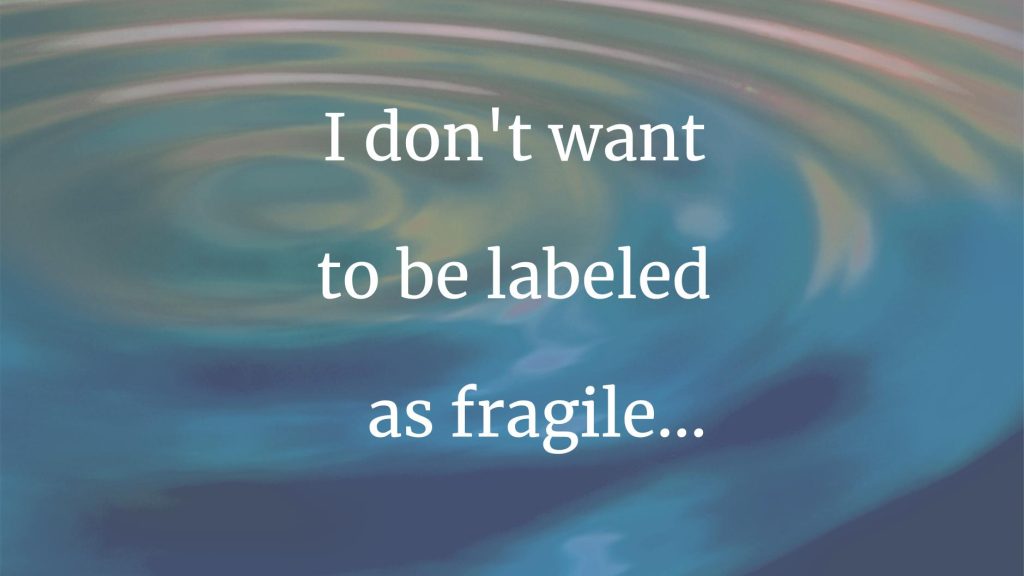
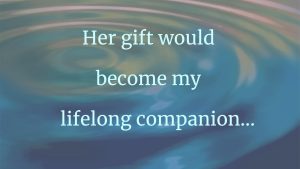
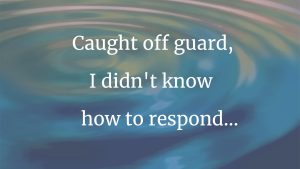
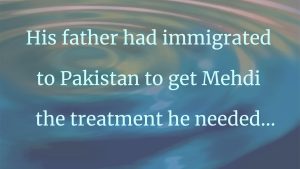
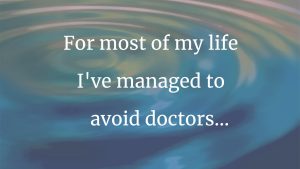
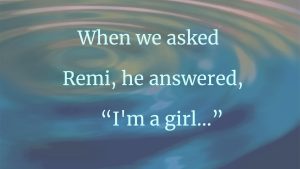
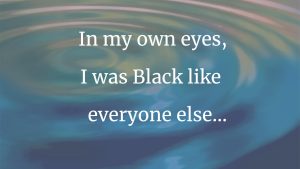

11 thoughts on “Invisibly Different”
I just love this.
Thank you for sharing your story. This is how we all heal. I think you will be a great physician.
This is so worthy of winning first place. It is so good and so helpful for so many people who have no idea what Tylenol can do. Glad you are able to help people.
Thank you for sharing! Writing about vulnerabilities, fears, feelings of shame are brave act. I hope you continue not only your medical training, because our society needs compassionate doctors, but also your writing. Our world needs beautifully written, honest stories like yours.
You are wise to be selective in your disclosures. Many people, whom I consider privileged, have no understanding of mental illness and find the taboo topic of suicide incomprehensible. The negative associations that are predictable for anyone who even raises the conversation can add to the stigma and sense of burning shame you write about. In medical school, one hopes for a broader understanding of these issues, but these institutions are still far off from this and individual bias is always present. In future, for patients who go through a similar experience, your presence and experience will be a blessing and help them recover from their trauma.
Thank you for your post.
I’m 65 and my experience suggests that most people won’t know what to think if they learn about your past. They will take thier cues from what you think.
I think you will likely be a skillful healer.
Dear Anonymous:
As a colleague, I admire the strength it took at age 13 to reconsider your actions; that was real courage, the same courage it took to write this piece. Your difficult experience will give you a unique perspective when you treat your own patients over the next few decades. You will be a special doctor to those individuals who need the kind of understanding which you can provide.
Thanks for changing your mind; you would have been missed.
I admire your courage. We as a society need to delete the stigma attached to mental health challenges. I wish that everyone would read your beautiful and honest story to gain more tolerance of those who suffer mentally and emotionally, not just physically. May you enjoy a wonderful career as a physician—and may you one day be able to live in a world that fully accepts all parts of you. You deserve to be seen and valued.
Thank you for sharing this. We recently lost our 24-year-old grandson to suicide. I absolutely understand the feeling about flippant comments regarding suicide. A month ago, that would not have made any impression on me. Now I cringe when I hear some similar comment in a movie.
Thank you for this. I hope and pray that our culture will gain understanding of mental health challenges and that will result in improvement in medical folks’ understanding of suicide, depression, anxiety, etc – and treatment of people with mental health diagnoses will improve. You are going to be a great physician and you will make a huge difference for people in deeply vulnerable situations.
Thank you for your openness in sharing. I truly believe mental health and specifically suicide needs to be discussed without judgment or shame. Maybe more lives can be saved if they know they’re not alone. Thank you for helping decrease the loneliness.